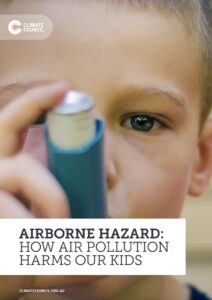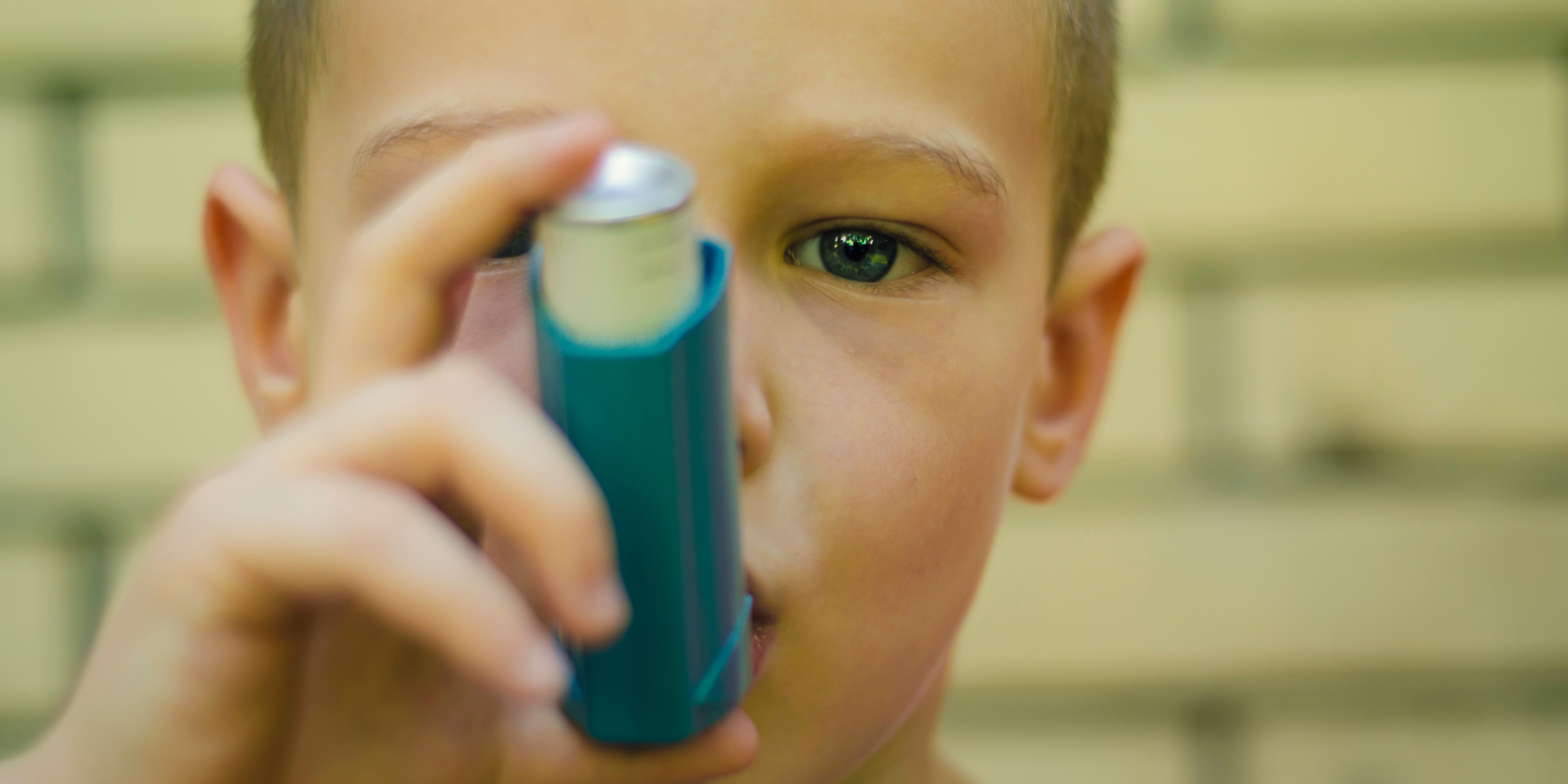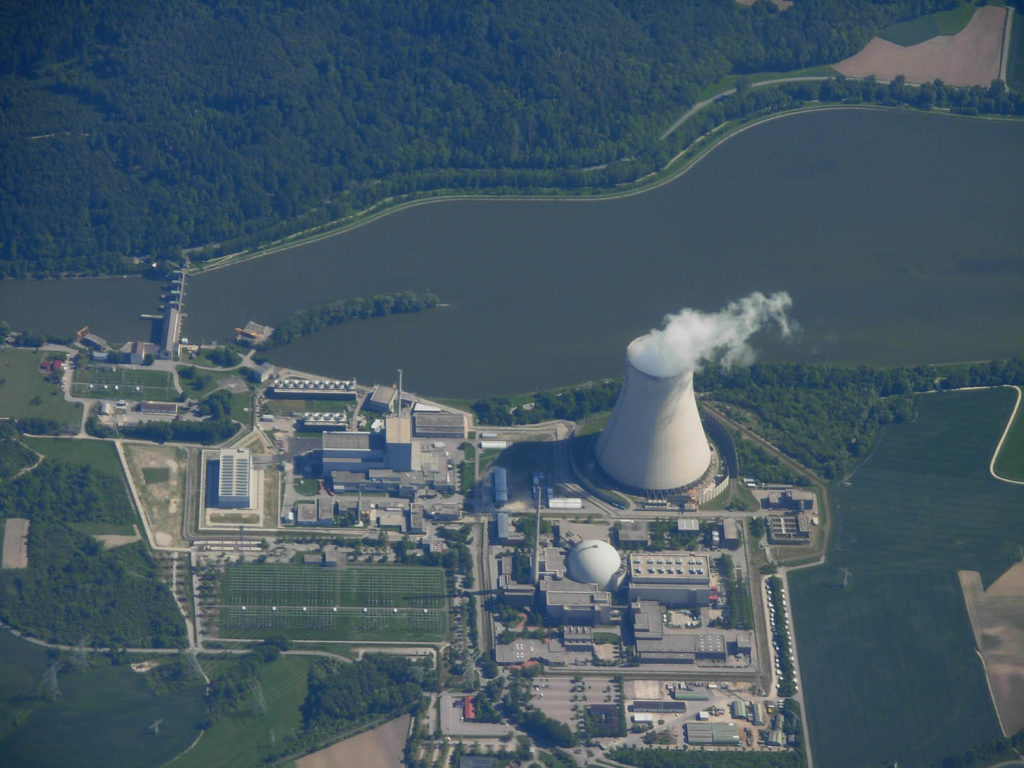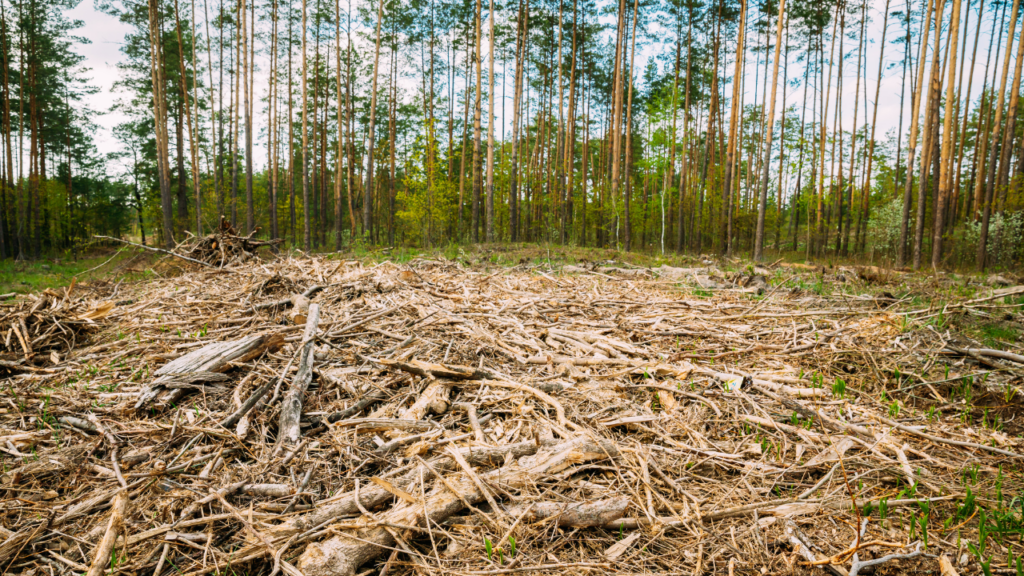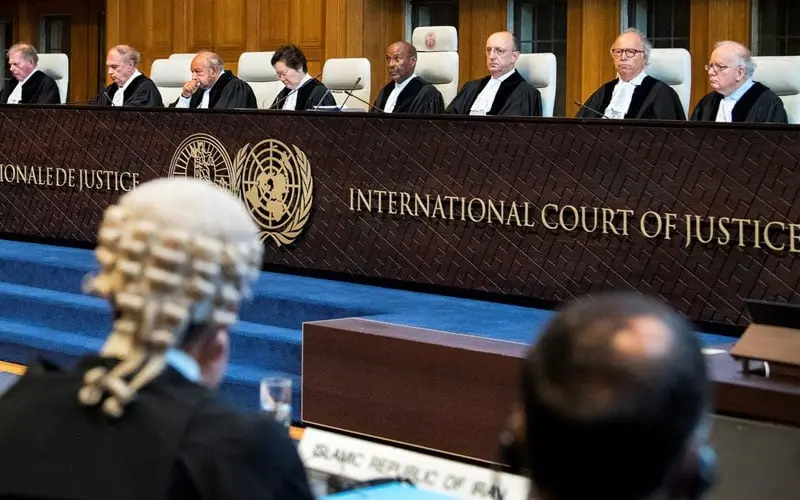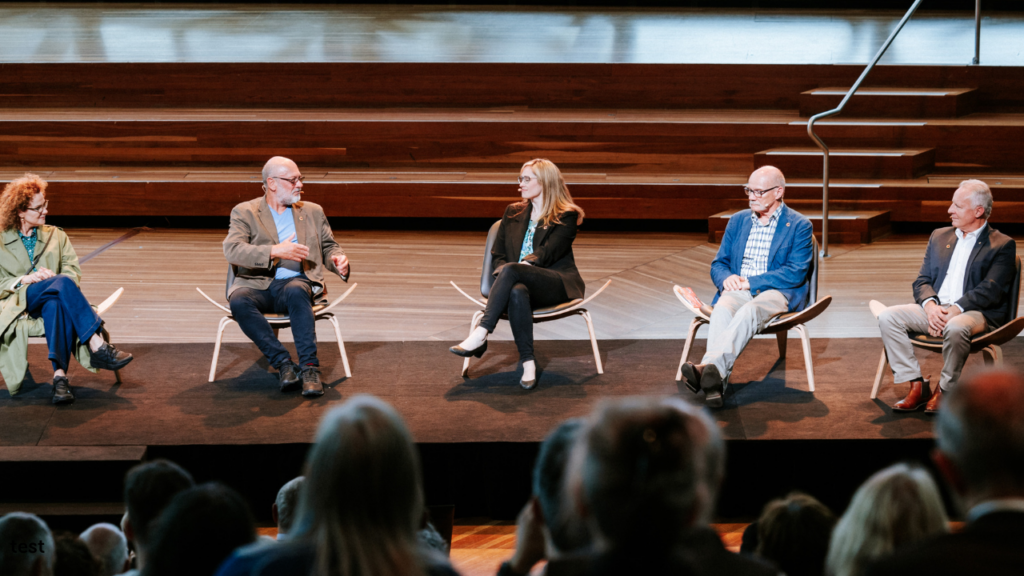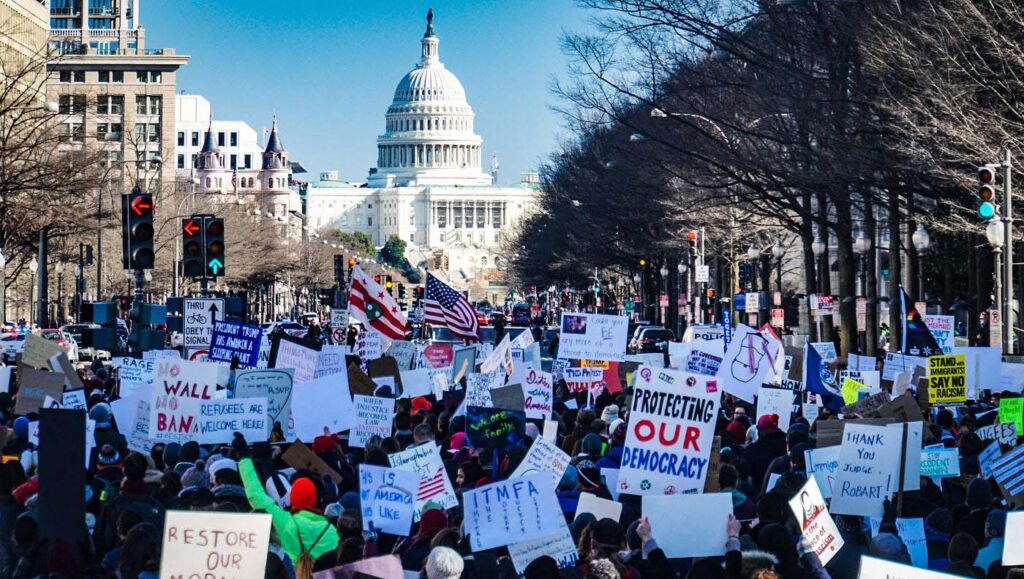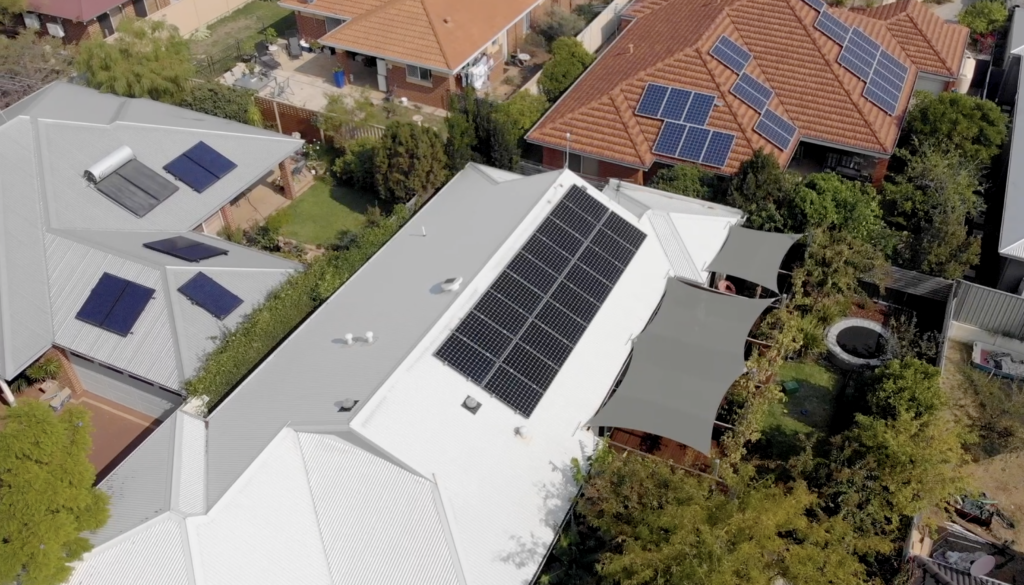Ever stepped out of your front door, and taken in a big breath of fresh air? Depending on where you live that air might not be as clean as you think.
Although Australians enjoy air quality that’s better than in many parts of the world, three times as many of us are dying prematurely from air pollution than from traffic accidents.
A key culprit? Coal, oil and gas. These fossil fuels emit most of the toxins we’re breathing in, as well as the climate pollution that’s overheating our planet and driving unnatural disasters. At every stage of their production, and no matter how they are used, fossil fuels are harming us.
Many researchers have compared the impacts of air pollution – which include more asthma attacks, respiratory disease and poorer lung function – to the poor health outcomes related to passive smoking.
We can be doing so much more to cut air pollution, which will reduce asthma incidence and exacerbations, hospitalisations for respiratory infections and premature deaths. Building more clean energy like solar and wind, backed by storage, means we can close polluting coal-fired power stations. Providing more people in our cities with cleaner ways of getting around means we can clean up air pollution from traffic that’s clogging up our streets. In doing so, we can also cut climate pollution further and faster.
What a breath of fresh air that would be!
Key Findings
1. Coal, oil and gas is causing most of the air pollution we’re breathing in, as well as the climate pollution overheating our planet and driving unnatural disasters.
- The vast majority of human-caused air pollution is caused by the burning of coal, oil and gas.
- Researchers found air pollution from fossil fuels was responsible for 8.1 million premature deaths worldwide in 2021 – more than the deaths attributed to tobacco, dietary risks or high body mass index.
- Using coal, oil or gas to power our cars, power stations, mining operations and factories is the main source of climate pollution that’s overheating our planet, and driving more intense weather extremes.
- Air pollutants are released at every stage of the production and burning of coal, oil and gas. No matter where they’re used – whether in power generation, transport or our kitchen stovetop – fossil fuels are bad news for our climate, the air we breathe, costs to taxpayers and our health.
2. It’s been found that over three times as many Australians are dying prematurely from air pollution than those in traffic accidents.
- In 2021, outdoor air pollution in Australia was linked to an estimated 4,250 premature deaths, more than triple the 1,130 deaths that occurred in car accidents that year.
- Among Australians, 8% of diabetes deaths, 6% of ischemic heart disease deaths and 4% of lung cancer deaths are linked to air pollution.
- Air pollution is harming the health and wellbeing of Australians to the tune of $6.2 billion per year.
- Experts say that exposure to air pollution, even for short periods of time at levels below our national standards, harms the health of Australians.
3. Australian children are losing many more years of good health to disease or illness from air pollution than they are to secondhand tobacco smoke.
- In 2021, air pollution is estimated to have been responsible for almost seven times as many disability adjusted life years (the number of healthy years lost to poor health) as exposure to secondhand tobacco smoke among Australian children aged 0-14.
- Children exposed to air pollution face an increased risk of asthma. One study estimated that a 25% reduction in NO2 concentrations in NSW would lead to at least 2,597 fewer children with asthma.
- Researchers in Australia and internationally have found that traffic-related air pollution increases the risk of asthma attacks, reduces lung function and puts people at higher risk of respiratory conditions.
- Coarse particulate matter (PM10) from traffic exhaust was estimated to have prematurely killed between 1,000 and 2,550 Australians in 2018, and contributed to 26,700 other hospitalisations, asthma attacks and disease episodes.
- Breathing in small particulate matter (PM2.5) from traffic while pregnant has been found to increase the risk of low-birth weight on a similar scale to passively smoking up to four cigarettes, while living next to a freeway was found to be equivalent to passively smoking up to 10 cigarettes per day.
4. Traffic pollution is harming children, and it’s preventable. New analysis shows one in every six schools and childcare centres within our capital cities are close enough to major roads to raise health risks for the children who attend.
- Children are more vulnerable to the harms of air pollution due to their physiology, size and behaviour. Those who live, learn or play near busy roads, factories or industrial areas are at greater risk.
- The more time that children spend near busy roads, the greater their exposure to air pollution and the greater their risk of poor health outcomes. One US study showed that the lung-function of eight-year-old children living within 100 metres of a major road was 6% worse than peers who lived at least 400 metres away.
- Climate Council analysis finds that about one-in-six of all schools and childcare centres across our capital cities are located within 100 metres of a busy main road. Childcare centres are the most likely to be located near a busy road (21% of them are), followed by secondary schools (17%) and primary schools (15%).
- This is worst in Melbourne, where almost a quarter of all schools (263) and childcare centres (nearly 850) are located on or near a busy road. Boroondara, Whitehorse – West and Port Phillip had the highest concentration of schools and childcare centres on or near busy roads.
5. We can’t easily move childcare centres or schools away from busy roads, but we can clean up air pollutants from traffic. This will create immediate health benefits for our kids.
- Building more clean energy like solar and wind, backed by storage, and phasing out coal, oil and gas is vital. It will clean up the air we breathe and cut climate pollution.
- We can dramatically and quickly cut climate and air pollution further by providing more people with options to get around in cleaner ways. Only half of the 15 million Australians living in our five biggest cities have access to frequent, all-day public transport today and many communities don’t have adequate walking, rolling or bike paths.
- An overwhelming majority (80%) of Australians want governments to invest more in public transport, and two in three (67%) want more investment in footpaths, bikeways and other active transport infrastructure.
